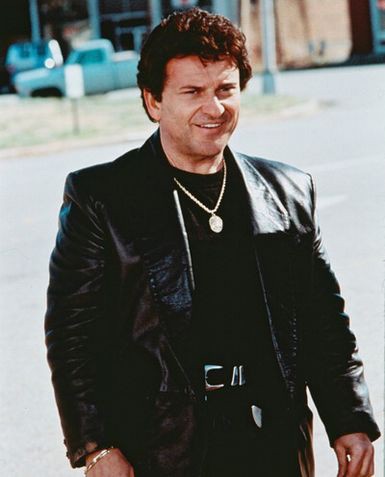Rapping ain’t easy. To produce high-quality, memorable hip-hop, it takes a certain level of dedication and perseverance. Hours, days and even years must be sacrificed to build a career as a rapper. Unless, of course, you’re a person with “connections.” Famous athletes, actors and other musicians, have attempted to penetrate the world of hip-hop and make their mark as legitimate rappers. Some have found success in their transitions; others have not fared as well. None of this is to say that celebrities should stop trying to rap — it’s just that the results can be awkward and often downright comical.
Here are three people who should have taken a pass on hip-hop:
Dee Dee Ramone, bassist and lead songwriter for legendary punk band the Ramones, made an ill-fated entry into hip-hop in 1989 by releasing the album Standing in the Spotlight under the moniker Dee Dee King. Critics loathed this album so much that some said it was among the worst albums of all time.
Prior to releasing Spotlight, Dee Dee had recorded “Funky Man,” an insanely monotonous and almost unbearable tune. However, it has been suggested that the album, and his attempt at rapping in general, was partially in jest, ultimately giving Dee Dee the last laugh. Ramones fans won’t remember this album kindly, but thankfully, Dee Dee returned to making punk albums until his death in 2002.
Let’s start by saying that Joe Pesci is gangster. His characters in “Raging Bull”, “Goodfellas” and “Casino” are more gangster than any gangsta rappers, except N.W.A. Shit, he was even kind of badass in the “Home Alone” movies. Pesci would try to take his swagger from the big screen to the studio in his 1998 album Vincent LaGuardia Gambini Sings Just For You, most notably in the single “Wise Guy.”
The song makes references to some of Pesci’s more prominent mafia gangster roles and features a sample of Blondie’s “Rapture.” Despite “Wise Guy” being completely absurd, Pesci maintains a solid flow throughout and brings enough material for three full verses. Like Dee Dee Ramone, Pesci’s rapping was not meant to be taken seriously and no follow-up was made to “Wise Guy”. To this date, Joe Pesci is still in possession of a hood pass, so don’t count out a possible return to the studio.
Being a skateboarder from the East Coast, I was a huge Jereme Rogers fan growing up. For about six or seven years, Rogers was a force in professional skateboarding, racking up a massive amount of coverage in videos, magazines and contest appearances. As Rogers’s behavior started to become more erratic — neck tattoos, tripping on shrooms while naked on a roof, a treble clef face tattoo — he shocked the skateboarding world by retiring in 2009 to focus on a rap career.
Like Ramone and Pesci, Rogers’ initial tracks, penned under the name of J. Casanova, were not taken seriously by fans and critics. YouTube videos of his tracks rivaled Rebecca Black for highest dislike-to-like ratio. Unfortunately, Rogers was completely serious about his career choice and insisted he was meant to be a rapper all along. Rogers eventually returned to skateboarding by launching his own company in 2010, to mixed reaction from the skateboarding community.
Rogers has actually improved since he started rapping, and many who initially trashed his career change have begun to come around. For what it’s worth, I would rather have seen Rogers on a board these past few years, but if he’s having that much fun rapping then maybe it’s not such a bad choice.
Follow us on Twitter @wildcatarts and follow Grant @IsThisGrantHull.









